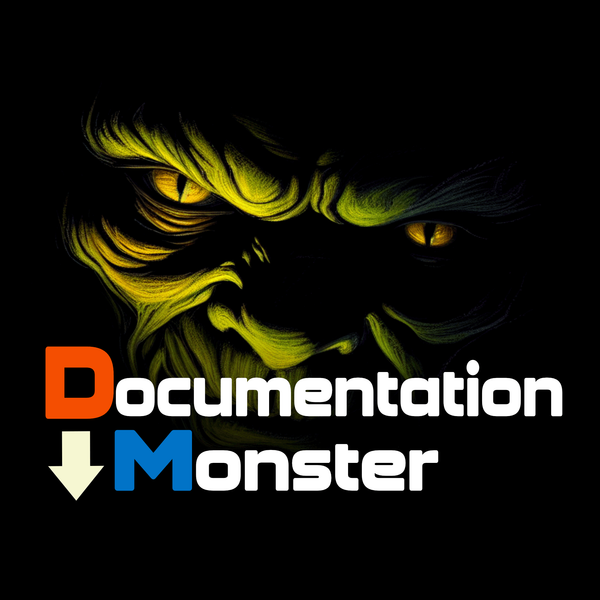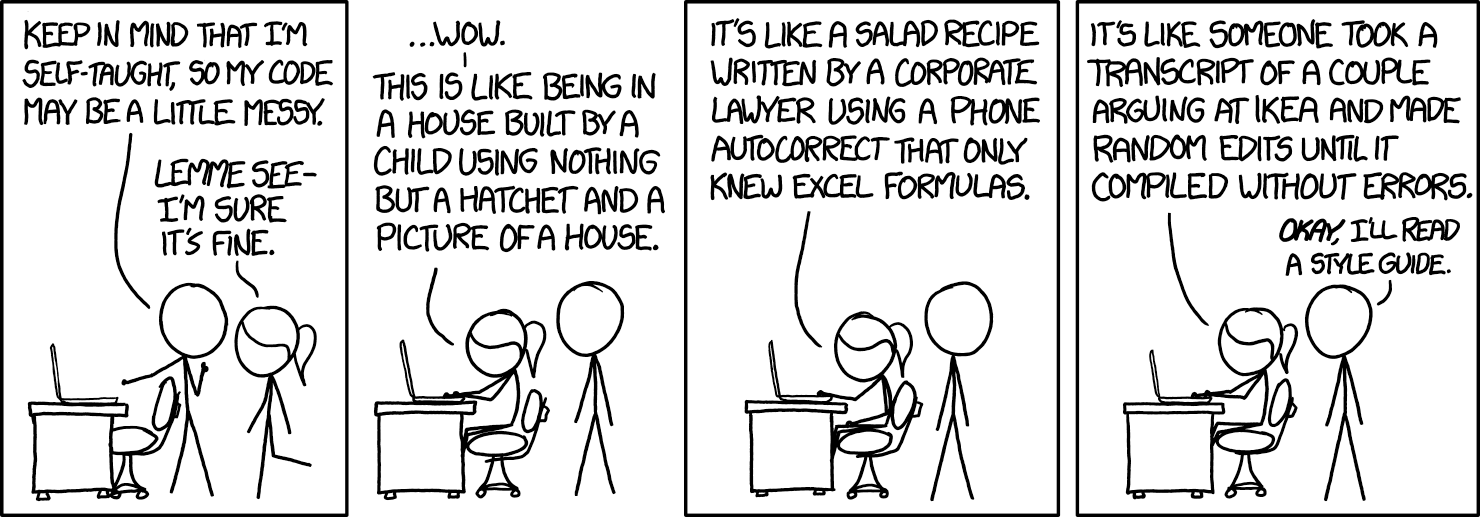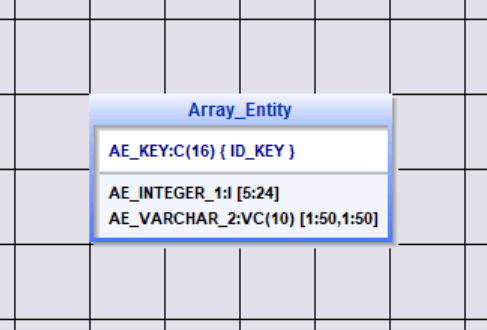CodeBot for Delphi: A Seismic Shift in AI-Assisted Development
Delphi developers are no strangers to innovation, but few presentations at AI CodeCamp 2025 provoked as much excitement—and serious reflection—as David Millington’s preview of CodeBot for Delphi.
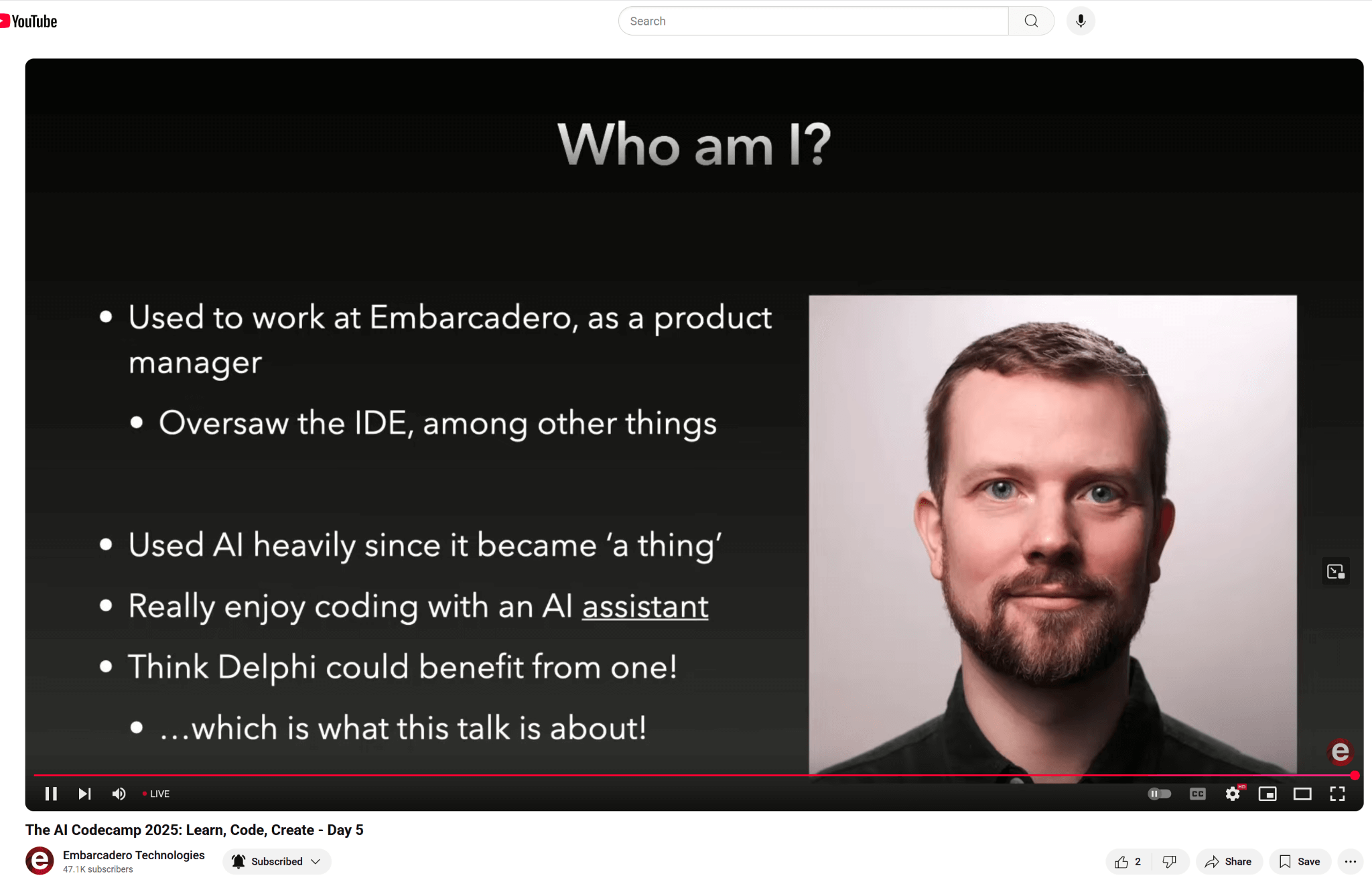
Delphi developers are no strangers to innovation, but few presentations at AI CodeCamp 2025 provoked as much excitement—and serious reflection—as David Millington’s preview of CodeBot for Delphi. In a session that felt less like a pitch and more like a glimpse of the future, Millington introduced a prototype that pushes AI support far beyond autocomplete and context-free suggestions. He calls it a "paradigm shift." After seeing it, it's hard to argue otherwise.
Why CodeBot Matters
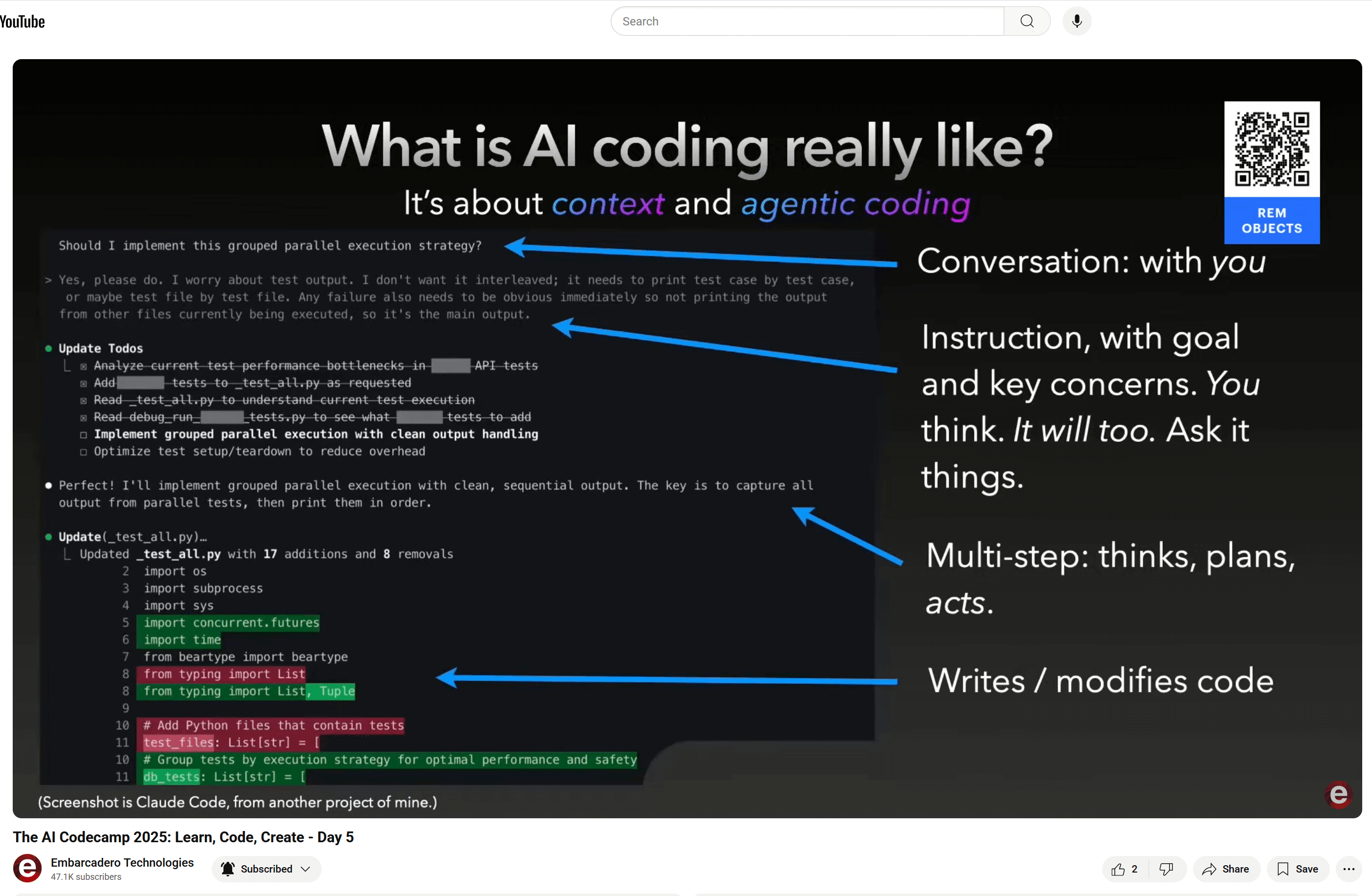
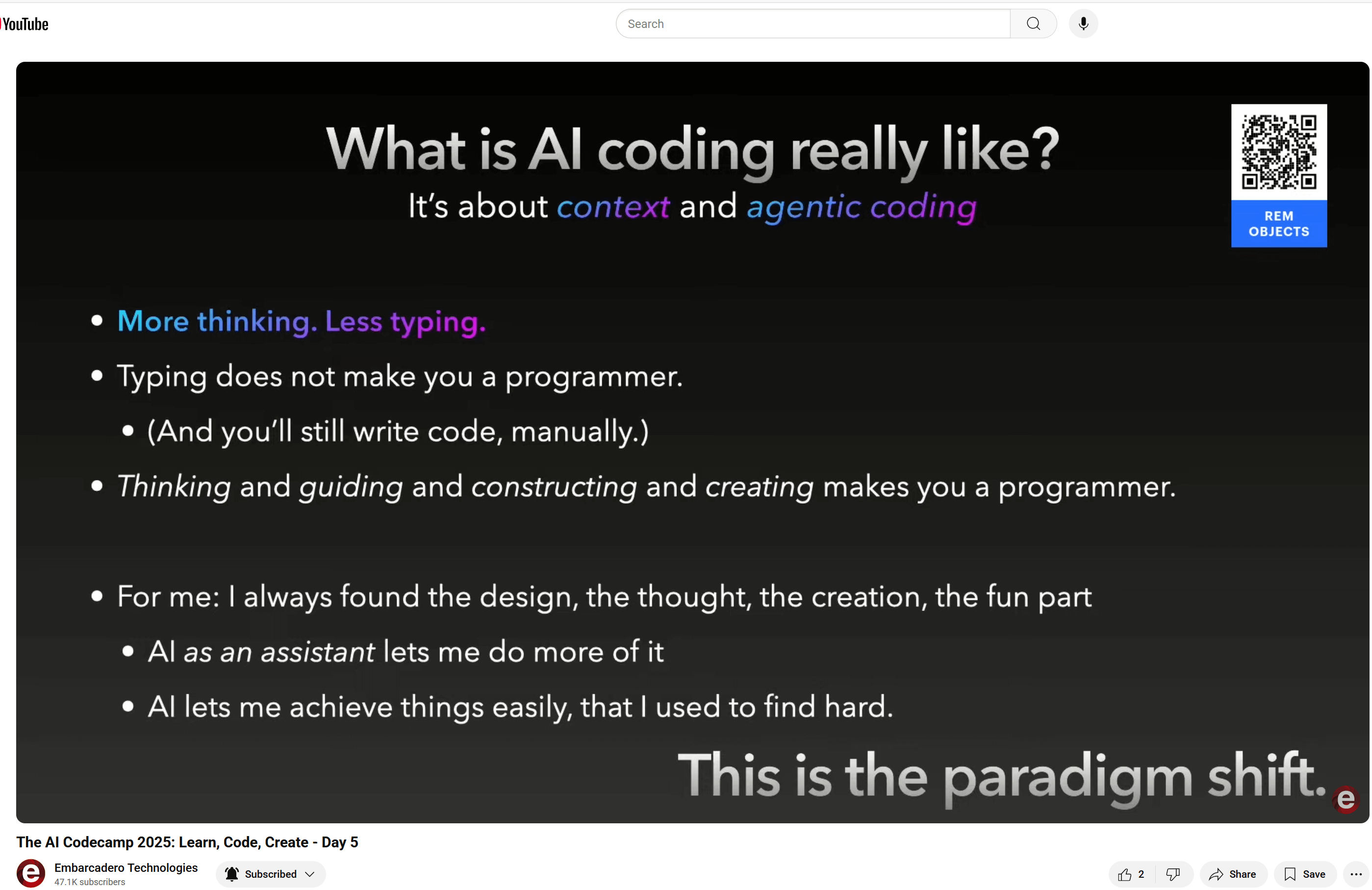
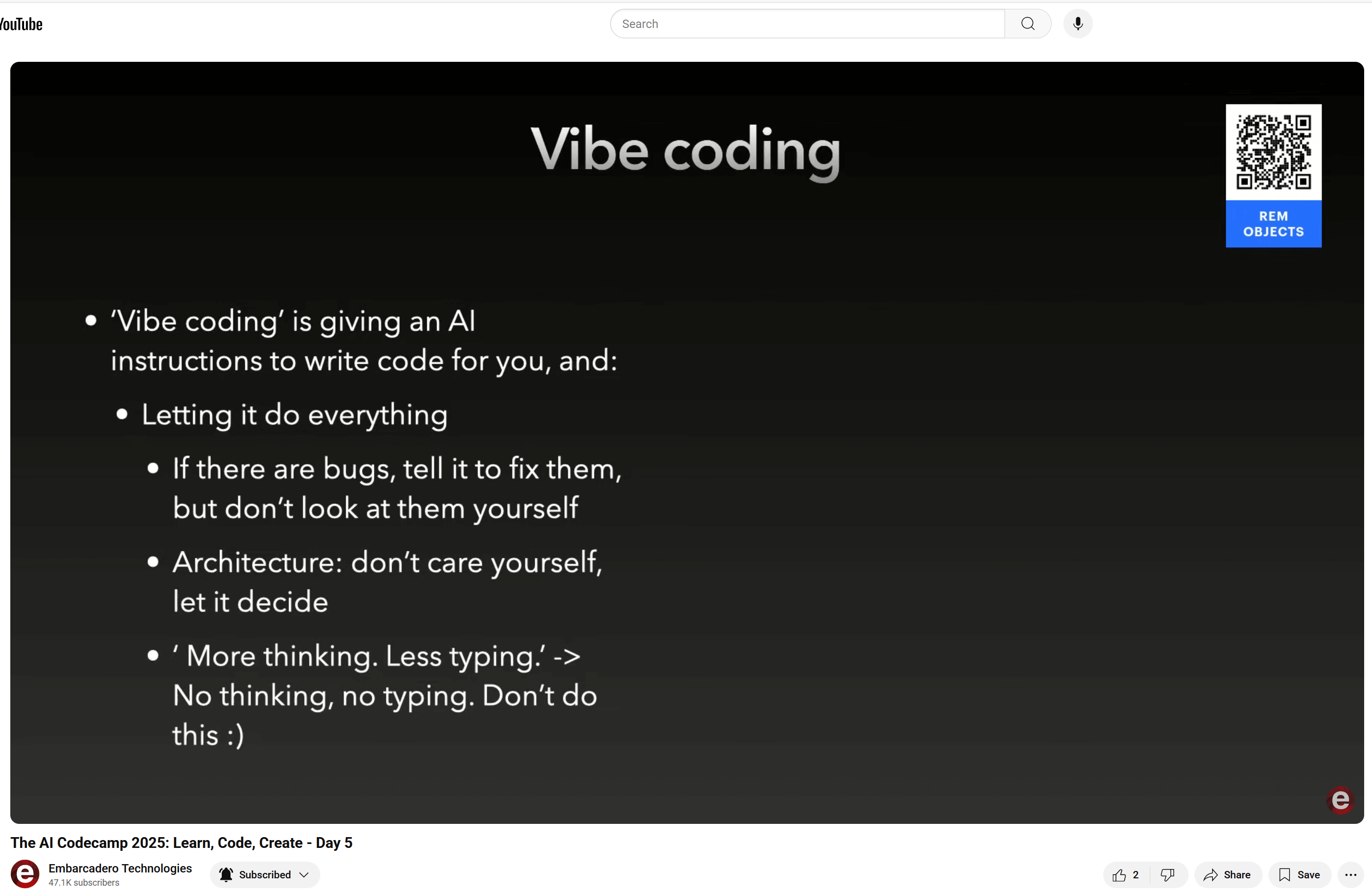
Don't confuse context and agentic coding with vibe coding.
Most current "AI integrations" in IDEs function as isolated assistants. They take a prompt, make a guess, and offer boilerplate answers based on a narrow window of code. Millington's vision is strikingly different. CodeBot aims to be agentic. It reads and reasons about your entire code base like a thoughtful partner, not a glorified clipboard.
It’s not a finished product, and he’s transparent about that. But it’s not vaporware either. The demo shows how CodeBot:
- Analyzes bugs with meaningful context.
- Understands your Delphi code at the unit and implementation level.
- Completes entire methods with usable, logically coherent implementations—not just a header or stub.
- Engages in interactive dialogue with the developer.
The wow factor isn’t just the feature set. It’s the intentional design direction—to treat AI as an assistant that works with you, not just an answering machine that gets things wrong half the time.
Design First, Code Later
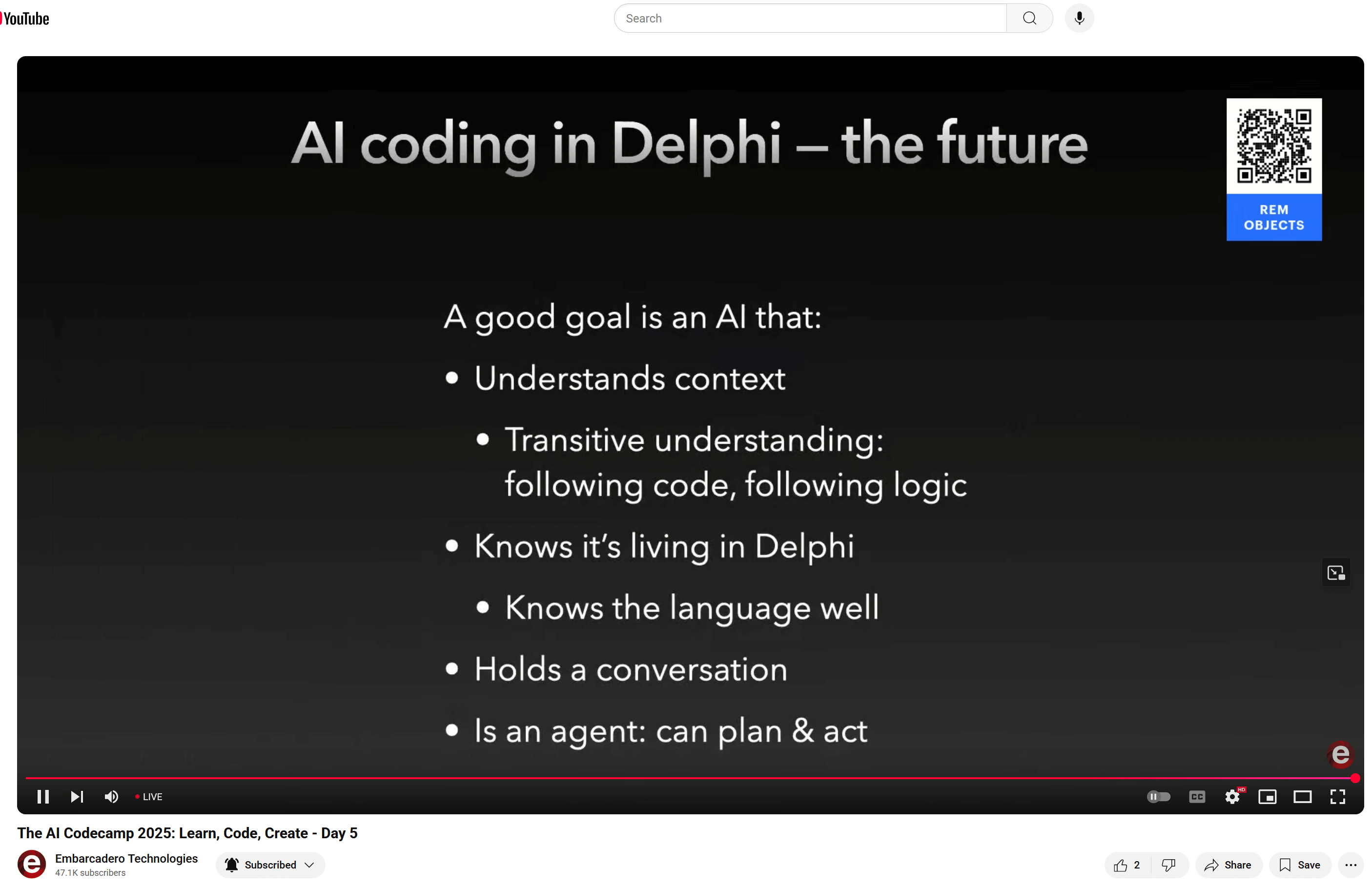
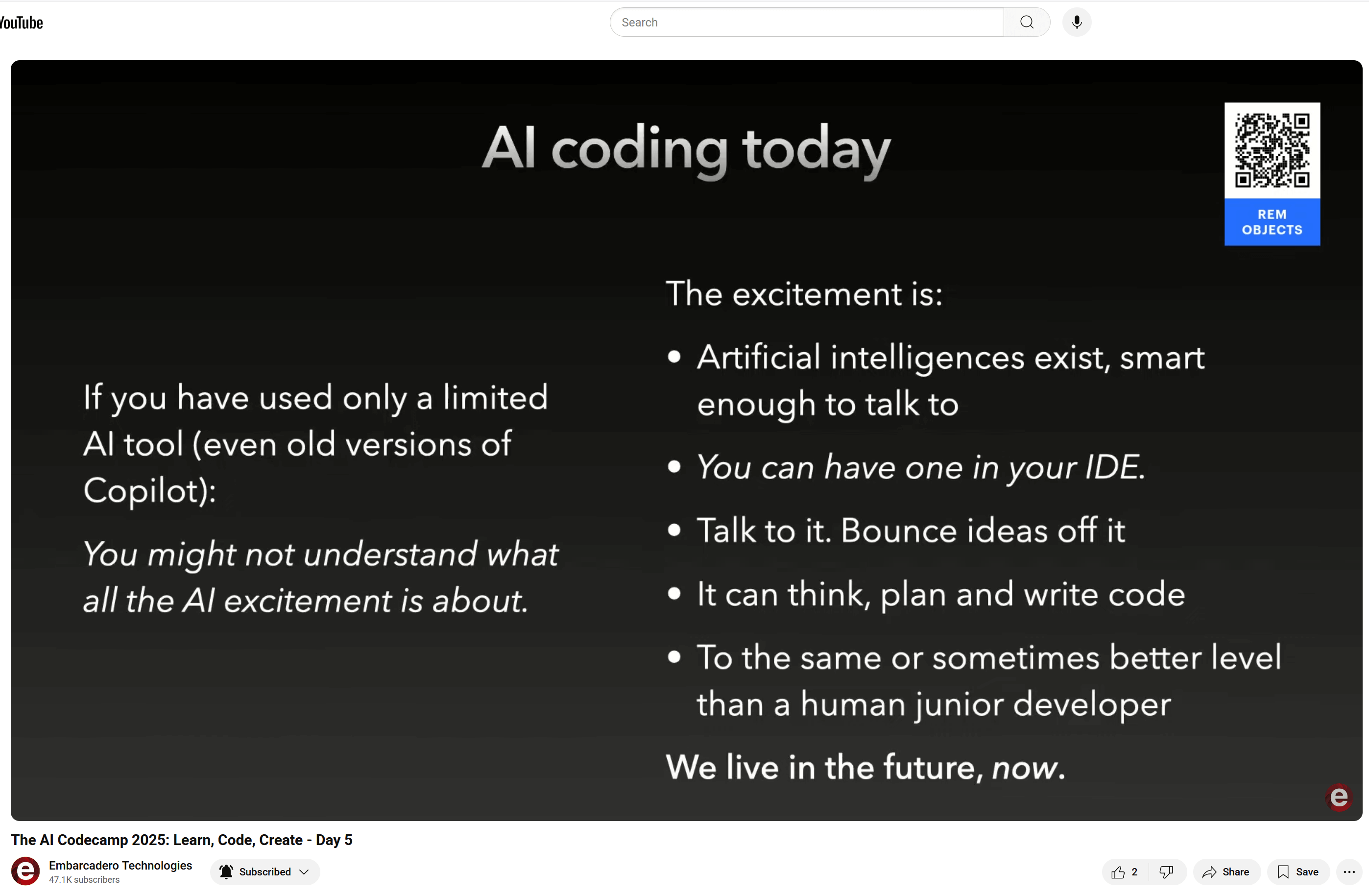
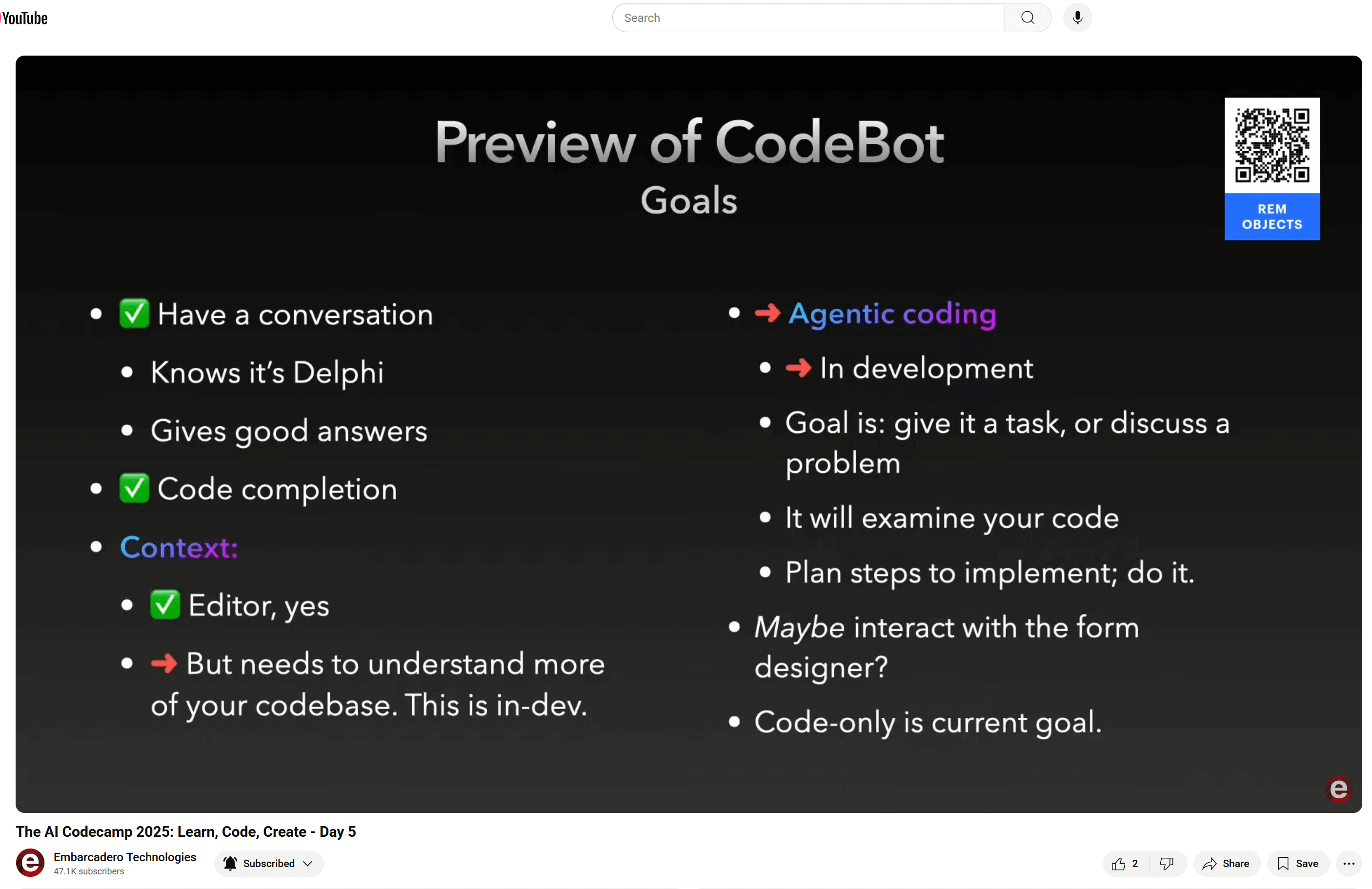
Suddenly, you become the creative designer instead of just grinding out code.
One of Millington’s key takeaways was that CodeBot’s real power lies not in generating code fast, but in enabling developers to think at a higher level. Let AI fill in the method body. You focus on design, architecture, and making the hard decisions that define great software.
It’s a compelling argument—especially for teams mentoring junior developers. CodeBot can act as a code translator, turning high-level intent into first-draft implementations that a human can inspect, correct, and improve. The result? Faster onboarding, better productivity, and maybe even a renaissance of Object Pascal.
Security and the AI Trust Barrier

In the live Q&A, one audience member raised the elephant in the room: "Can I trust an AI assistant with my proprietary code?" Millington didn’t sugarcoat his response:
“If you don’t want AI to access your code, then don’t use AI.”
But his real point was subtler—and more important.
Many developers and companies already trust cloud platforms with their most sensitive information. Gmail handles corporate email. Google Docs stores strategic planning documents. AWS runs production databases. The real issue, then, isn't whether AI can be trusted—it’s whether you're willing to extend the same risk-managed trust to AI tools under similar contractual, technical, and procedural safeguards.
The message was clear: Security concerns should be taken seriously, but not used as a blanket excuse to avoid transformative tools. Instead, teams should evaluate AI usage on the same terms they use to evaluate any cloud-based service: Is the data encrypted? Who owns it? Can it be logged, audited, and controlled?
If that trust framework already exists for your cloud provider, it can likely be adapted for your AI assistant as well.
What Else We Learned in Q&A
The session closed with a remarkably candid and informative Q&A. Some highlights:
- Training Tool Potential: CodeBot could accelerate junior developers' learning by offering coherent implementations they can study and adapt.
- Voice-to-Code on the Radar: Millington acknowledged the value of voice input for coding and said it’s being discussed internally.
- Token Usage and Cost: Yes, it uses a lot of tokens due to large context handling, but LLM costs are falling rapidly and are seen as manageable.
- Model Specificity: CodeBot does not appear to use a Delphi-fine-tuned model, but rather shapes generic models with deep context and smart prompt engineering.
Pricing: A Work in Progress
Millington didn’t commit to a specific price point, but emphasized their intention to make CodeBot accessible and affordable. Barker noted that RemObjects generally has a reasonable pricing philosophy. Still, this remains an open question—one that will weigh heavily on developer adoption.
Closing Thoughts
CodeBot for Delphi isn’t just another AI wrapper. It reflects a deep understanding of how developers actually work, and it refuses to pander to buzzwords or hype. It’s technical. It’s real. And it might be the most meaningful advance in Delphi tooling in years.
If you’ve ever found yourself thinking, “AI copilots are great for JavaScript, but what about me?”—this is your answer.
This blog post was developed using human-authored session notes and SRT transcription, synthesized and structured with AI support, and reviewed by a human editor for accuracy and tone. It’s a small example of the kind of human-AI collaboration that tools like CodeBot promise to elevate to the next level.
